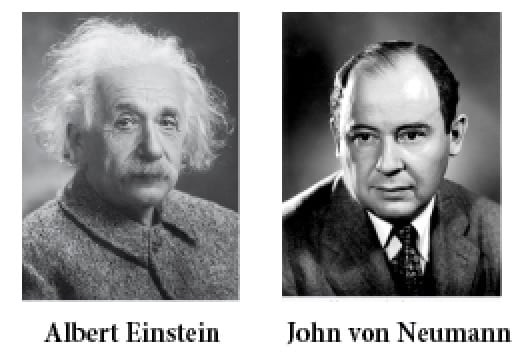
Many people ask questions such as, “Who was more intelligent, Einstein or Newton?” In the modern context, the question is, “Who is smarter, Elon Musk or Bill Gates?” Both questions are unanswerable because intelligence is a multi-dimensional attribute. Imagine that you’re lost in the Australian outback and you have a choice of people, Elon Musk, Bill Gates or a Steve Irwin (crocodile hunter) type to guide you out of the wilderness. Whom would you choose?
Most people would choose a Steve Irwin type, because this person would know, better than anyone else, the environment–the dangers, the food and water sources, and the routes to safety. Einstein’s high intelligence was his capacity for abstract thinking and his instinct for the workings of nature. His skill was his capacity for abstraction and his ability–albeit with the help of colleagues–to express his ideas in mathematical language. Shakespeare’s high intelligence was his remarkable insight into human nature. His skill was his ability to express these insights cogently using the English language. Though they spoke in different languages, each had brilliant insights that were manifestations of their intelligence.
When Weizmann, the first President of Israel died, Einstein was invited to become his successor. Einstein refused, stating that he lacked the natural aptitude for social interaction that would be required in such a political position. In other words, he felt his exceptional problem solving skills in physics would not easily transfer to managing human affairs.
Surely we can compare two mathematicians or physicists; aren’t these two people in the same environment? Strangely, even in this environment, people are equipped with different problem solving skills. John von Neumann was brilliant and was known for his quick problem-solving ability as well as his deep mathematical insight. Kurt Gödel seemed to be a person who solved deep problems by ruminating over a long period of time. His deep Completeness Theorems upended the foundations of mathematics. It is not possible to identify who was the “smarter” of the two. Jacques Hadamard in his seminal book, “The Psychology of Mathematical Invention,” explained that some mathematicians are visually oriented and others more symbolically oriented in their problem solving abilities.
Even when we attempt to compare geniuses by their contributions, these are related to perceived significance. Andrew Wiles’ proof of Fermat’s Last Theorem, was a monumental achievement, but to the average citizen, the result is not nearly as significant as Einstein’s Special Theory of Relativity, because the revelation that time is not absolute would seem to be more important than the knowledge that Fermat’s conjecture is true.
Any two people can be compared by weight. That is, for any two people A and B, one of the following applies: A ≥ B or A ≤ B . Mathematicians call this a “total order.” The set of real numbers is a total order. However, suppose we compare people according to their height and weight. Suppose we say that person A is “bigger” than person B if A is greater than B in both height and weight. If A is taller than B, but B has greater weight, we cannot say who is bigger. The term “bigger” cannot be used to compare A and B. In this case, mathematicians say that the attribute “bigger,” when applied to all humans, is a “partial order.” This means that it can compare some pairs of humans but not others.
This is the subtle idea underpinning the confusion in using IQ to compare intelligence. An IQ score is a whole number, so it defines a total order over the set of all people. This prompts many people to believe that if A has an IQ greater than B, then A is smarter than B. However, all that this comparison reveals is that A is probably better than B at things measured by an IQ test. There are other dimensions of intelligence, such as creativity, imagination, and long-term problem-solving ability that IQ tests don’t measure. Since intelligence is a partially ordered set over all humans, we cannot compare the intelligence of people at the very highest levels of IQ. However, for comparisons of the intelligence of most pairs of people, IQ is a reasonable first order approximation.
People are relentlessly striving to compare the intelligence of brilliant people, but in the end it boils down to a value judgement. In this link, Peter explains his basis for comparing the intelligence of brilliant people and acknowledges the challenge. See: https://qr.ae/pynzGr
